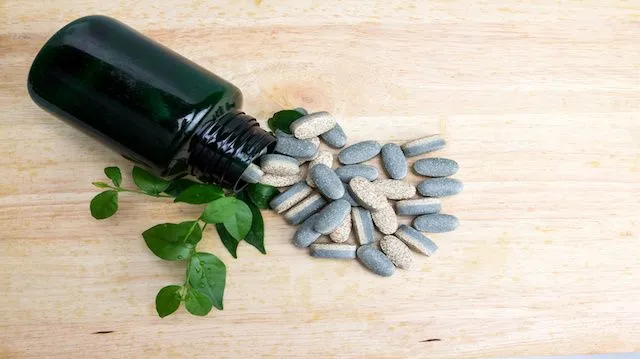
- Share on Facebook290
- Share on Pinterest
- Share on Twitter
If you follow a whole-foods diet and eat a wide variety of vegetables and fruits, you may not need to take an additional multivitamin. Nutrients are best absorbed in their natural form, and while supplements can help replace missing nutrients, you should not depend on them for long-term health.
Instead, add these superfoods to your diet for nutrition you can actually use. In fact, most of these vitamin-rich foods contain even more nutrients than the average multivitamin.
Seaweed
Seaweed is one of the best sources of natural iodine. A large portion of the global population is deficient in iodine, and seaweed is the perfect way to add more to your diet. The U.S. Department of Agriculture (USDA) recommends that adults consume about 150 micrograms of iodine daily.
Seaweed like nori, kelp, kombu, and wakame all contain the recommended daily amount or more. Kelp contains up to 1,000 percent more than the recommended daily value for iodine.
Brazil nuts
Brazil nuts are the large, bitter nuts that are usually the last to be eaten from a bowl of mixed nuts. However, they are high in beneficial nutrients. The selenium content in Brazil nuts is off the charts. One single Brazil nut contains about 100 percent of the recommended daily intake for selenium.
In fact, the selenium content in Brazil nuts is so high that if you eat more than a handful per day, you could actually damage your body with too much selenium. So, stick to eating two or three at a time.
Kale
Kale is beloved in health-food circles because it is packed with beneficial nutrients. A serving of kale contains high levels of multiple vitamins and minerals, including vitamins B6, C, and K1, and the minerals iron, potassium, manganese, and copper.
Liver (organic, grass-fed)
Many people don’t like liver and therefore refuse to eat it, but you should. Liver contains more nutrients than any other part of an animal. Liver is high in vitamin B12, iron, folate, copper, and vitamin A. Some experts recommend consuming liver up to two times a week.
Cod liver oil
Cod liver oil used to be given routinely to children as a preventive medicine, and was also used as a punishment for unruly children. Scientific evidence now shows that cod liver oil is beneficial for our health in multiple ways. It is one of the only food sources of vitamin D, and it is also extremely high in heart and brain-healthy omega-3 fats.
Shellfish
Why should you eat shellfish? Shellfish contain high levels of B-vitamins that are difficult to find elsewhere. Vitamin B12 and B6 are present in large amounts in shellfish, which can provide up to 1,600 percent of the recommended daily value, depending on the type of shellfish eaten (clams are particularly high in B12).
Shellfish also contain high levels of iron, potassium, and selenium.
Red and yellow bell peppers
We usually eat green bell peppers because they are cheaper, but the vitamin C levels of yellow and red bell peppers are much higher than those of their green sisters. Getting enough vitamin C is important for immune system function, as well as for muscle health, brain health, and hormone production.
One single red or yellow bell pepper contains about 600 percent of the recommended daily intake for vitamin C.
It’s easy to get enough nutrients if you eat the right foods. Most people don’t have to take a daily multivitamin to remain healthy. If you are worried about maintaining the ideal nutrient balance, eat a variety of whole foods and make vegetables and fruits your largest energy source, followed by high-quality, healthy proteins.
-Brenda Priddy
Brenda is a writer, chef and health nut with many years of writing experience in the alternative health industry. She specializes in health news, healthy living, alternative treatments, and healthy recipes. She loves educating others about sustainable, healthy living. Brenda lives in Texas with her husband and two daughters.
Sources:
https://wsg.washington.edu/wordpress/wp-content/uploads/publications/Nutritional-Value-of-Shellfish.pdf
http://nutritiondata.self.com/facts/vegetables-and-vegetable-products/2766/2
http://www.whfoods.com/genpage.php?tname=foodspice&dbid=38
http://nutritiondata.self.com/facts/nut-and-seed-products/3091/2
http://nutritiondata.self.com/facts/beef-products/3469/2
http://nutritiondata.self.com/facts/vegetables-and-vegetable-products/2896/2
- Share on Facebook290
- Share on Pinterest
- Share on Twitter

